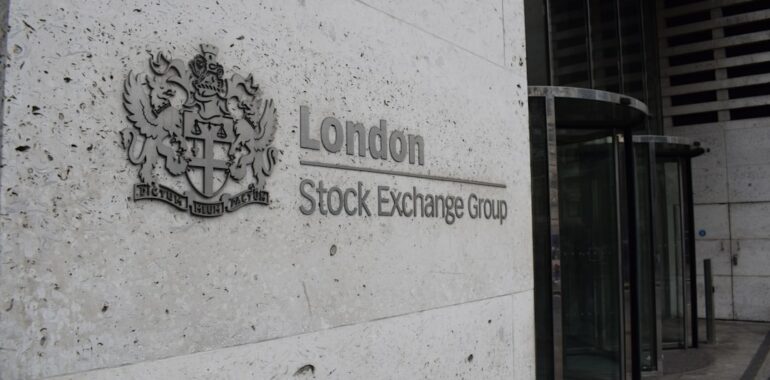10 Largest Stock Short Squeeze Events in History

Dive into the 10 biggest stock short squeezes of all time with our comprehensive analysis and discover how these events shaped the financial markets.
Short squeezes have always been a pivotal aspect of the stock market, often leading to dramatic shifts in stock prices and altering the dynamics between retail investors and large hedge funds. A stock short squeeze occurs when a heavily shorted stock sees its price increase unexpectedly, forcing short-sellers to cover their positions by buying back shares, which in turn drives the price even higher. This phenomenon can create significant financial turbulence and has been the center of some of the most notable events in financial history. Below, we explore the ten largest stock short squeeze events that have left an indelible mark on the markets.
10. Reliance Industries Limited (NSE: RELIANCE.NS)
In the late 1980s, Reliance Industries Limited faced an aggressive short-selling campaign led by Manu Manek, a prominent stockbroker known as the “Cobra” of the Bombay stock market. As Reliance, under the leadership of Dhirubhai Ambani, began to rise, Manek’s short positions intensified. Ambani’s strategy to counter the squeeze involved orchestrating large-scale stock buybacks, stabilizing the share price and ultimately forcing short-sellers to incur substantial losses. This confrontation led to a temporary market shutdown, underscoring the intense rivalry and financial stakes involved.
9. Piggly Wiggly
The first self-service grocery store in the United States, Piggly Wiggly, experienced a dramatic short squeeze in the early 1920s. After rapid expansion, the company faced financial difficulties, prompting traders to short the stock. Clarence Saunders, the company’s owner, took a decisive stand by securing a significant loan to buy back shares, which propelled the stock price upwards. This move forced short-sellers to cover their positions at inflated prices, resulting in massive losses and highlighting the power of corporate leadership in influencing market dynamics.
8. Harlem Railroad
Cornelius Vanderbilt’s venture into the railroad industry in the 1860s led to one of the earliest instances of a stock short squeeze. As Vanderbilt acquired stakes in the Harlem and Hudson Railroads, short-sellers, including influential figures like Daniel Drew, attempted to drive the stock price down. However, Vanderbilt’s persistent buying of shares reversed the trend, escalating the stock price and causing substantial losses for those shorting the stock. This event solidified Vanderbilt’s reputation as a formidable force in the railroad and financial sectors.
7. Herbalife Nutrition Ltd. (NYSE: HLF)
Herbalife became the battleground for a high-profile short squeeze in the mid-2010s. Bill Ackman, a billionaire hedge fund manager, publicly declared Herbalife a pyramid scheme and initiated a massive short position. In response, Carl Icahn took a long position in the company, publicly challenging Ackman’s assertions. The ensuing battle between the two investors led to significant volatility in Herbalife’s stock price, ultimately forcing Ackman to exit his short position with substantial losses, while Icahn benefited from the company’s resilience and growth.
6. KaloBios
Martin Shkreli, known for his controversial business practices, orchestrated a short squeeze on KaloBios, a struggling biotech firm, in 2015. Facing significant debt and dwindling prospects, short-sellers bet against the company’s survival. Shkreli intervened by acquiring a majority stake and initiating a rapid increase in the stock price. This sudden surge forced short-sellers to cover their positions at inflated prices. Although KaloBios eventually faced bankruptcy, Shkreli’s maneuver demonstrated the disruptive potential of strategic stock acquisitions in executing a short squeeze.
5. Tesla, Inc. (NASDAQ: TSLA)
Tesla’s ascent amidst skepticism from traditional investors provided a modern example of a stock short squeeze. Despite repeated short-selling bets against the company’s valuation and prospects, CEO Elon Musk’s relentless innovation and market expansion efforts drove Tesla’s stock price soaring. As the price surged, short-sellers were compelled to cover their positions, amplifying the upward momentum. Tesla’s market performance not only validated its business model but also underscored the volatile interplay between innovation-driven growth and speculative trading.
4. AMC Entertainment Holdings, Inc. (NYSE: AMC)
AMC Entertainment became a focal point for retail investors rallying against hedge funds through platforms like Reddit. In a bid to challenge the bearish outlook of short-sellers, retail investors coordinated buying efforts, driving AMC’s stock price up by over 500% in a short period. This coordinated action not only inflicted significant losses on short-sellers but also highlighted the growing influence of collective retail investment strategies in shaping market trends and exerting pressure on institutional investors.
3. GameStop Corp. (NYSE: GME)
Perhaps the most iconic modern short squeeze, GameStop’s surge in early 2021 captured global attention. A coalition of retail investors from the subreddit r/WallStreetBets identified GameStop as a target due to its high short interest. Their concerted buying efforts led to a dramatic increase in the stock price, causing massive losses for hedge funds that had heavily shorted the stock. The GameStop phenomenon sparked discussions about market manipulation, the power of social media in finance, and regulatory implications for trading practices.
2. Alibaba Group Holding Limited (NYSE: BABA)
Alibaba, the Chinese e-commerce giant, has been a frequent target of short-sellers betting against its growth prospects. However, the company’s consistent ability to exceed market expectations and maintain robust revenue growth has repeatedly thwarted these bearish bets. Each time short-sellers anticipated a decline, Alibaba’s strong performance compelled them to cover their positions, leading to significant short-term price increases and reinforcing the resilience of established market leaders against speculative trading strategies.
1. Volkswagen AG (VOW3.DE)
The largest short squeeze in history occurred in 2008 when Porsche announced a surprise move to acquire a majority stake in Volkswagen. Prior to this revelation, Porsche held a substantial percentage of Volkswagen’s shares, but not enough to control the company. The announcement triggered a frenzy as short-sellers, who had bet against Volkswagen’s stock, were forced to buy back shares to cover their positions. This massive buying demand caused Volkswagen’s stock price to briefly become the most valuable company in the world by market capitalization. The event not only led to unprecedented financial losses for short-sellers but also underscored the immense impact that strategic corporate maneuvers can have on stock prices and market dynamics.
Conclusion
Stock short squeezes have consistently proven to be powerful market events that can redefine financial landscapes, influence investor behavior, and challenge established investment strategies. From historical battles like Reliance Industries and Piggly Wiggly to modern clashes involving GameStop and Tesla, these events highlight the volatile and unpredictable nature of the stock market. Understanding the mechanics and implications of short squeezes is crucial for both retail investors and institutional players aiming to navigate and succeed in the ever-evolving financial markets.
“The signs of a tectonic shift in this regard are already there.”
For more in-depth analyses and updates on stock market phenomena, visit SuperStonk.io.




